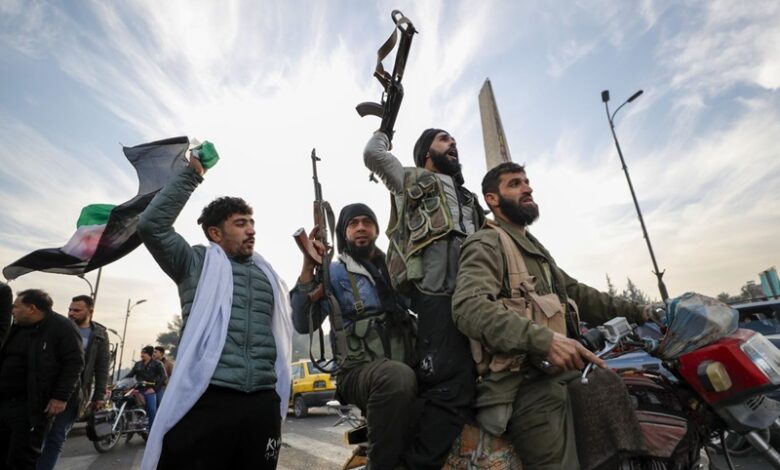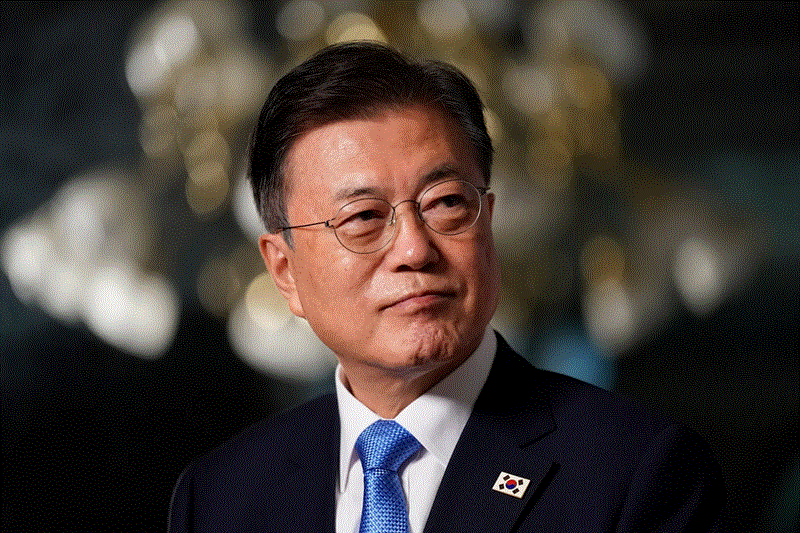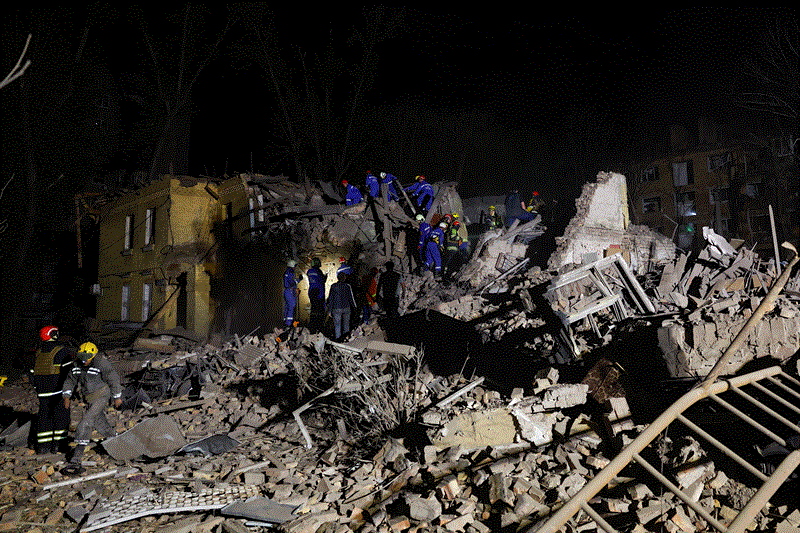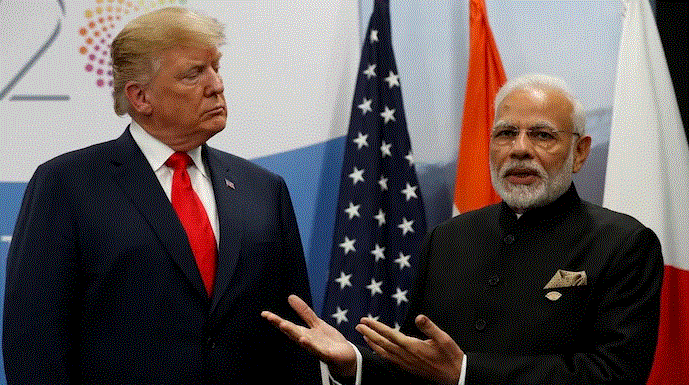With Assad gone, a new chapter begins in Syria while the world observes.

News Mania Desk / Piyal Chatterjee / 9th December 2024
Damascus came back to life on Monday, marking the beginning of a hopeful but uncertain period after rebels captured the capital and President Bashar al-Assad fled to Russia, ending 13 years of civil war and more than 50 years of his family’s cruel tyranny. Heavy traffic returned to the streets, as people came out following a nighttime curfew, although most businesses remained closed. Rebels milled around in the center. Firdous Omar, from Idlib in the northwest, told fighters in central Umayyad Square that he had been fighting the Assad administration since 2011 and was looking forward to putting down his weapon and returning to his job as a farmer.
“We had a purpose and a goal and now we are done with it. We want the state and security forces to be in charge.”
The rapid advance of a militia group led by Hayat Tahrir al-Sham (HTS), a former al Qaeda member, was a watershed moment for the Middle East. It brings an end to a war that has killed hundreds of thousands of people, created one of the largest refugee crises in modern history, and left towns blasted to rubble, areas of countryside depopulated, and the economy hollowed out by global sanctions. Millions of refugees could eventually return home from camps in Turkey, Lebanon, and Jordan.Assad’s demise eliminates one of the primary bases from which Iran and Russia exerted power in the area. Turkey, which has traditionally supported Assad’s adversaries, emerges stronger, while Israel hails it as the result of its blows to Assad’s Iran-backed friends.
The Arab world has the difficulty of reintegrating one of the Middle East’s core governments while restraining radical Sunni Islam, which fueled the anti-Assad rebellion but has already spread to the awful sectarian brutality of Islamic State.The United Nations continues to classify HTS as a terrorist organization, but it has spent years attempting to soften its image and disassociate itself from its al Qaeda beginnings in order to reassure foreign states and Syrian minority groups.
The group’s head, Ahmed al-Sharaa, also known as Abu Mohammed al-Golani, swore to reconstruct Syria.”A new history, my brothers, is being written in the entire region after this great victory,” he addressed a large gathering on Sunday at Damascus’ ancient Umayyad Mosque. Syria might become “a beacon for the Islamic nation” via hard work. Assad’s prime minister, Mohammed Jalali, told Sky News Arabia that he was willing to meet with Golani and would provide documentation and support with the power transition.He stated that the fate of Syria’s army would be “left to the brothers who will take over the management of the country’s affairs”. “What concerns us today is the continuation of services for Syrians.”
Assad’s police state was recognized for centuries as one of the worst in the Middle East, with hundreds of thousands of political prisoners. On Sunday, joyful inmates streamed out of jails. Reunited families wept with delight. Newly released convicts were seen sprinting through Damascus streets, holding their hands up to demonstrate how long they had been in prison.
The White Helmets rescue organisation said it has despatched emergency teams to look for concealed underground cells where detainees are thought to be held.The Mediterranean coast, home to Assad’s Alawite sect and the location of Russia’s naval base, was one of the last locations captured by the rebels. Looting occurred in the seaside city of Latakia on Sunday but had diminished by Monday, according to residents.
Two Alawite residents reported that so far, the situation has gone better than predicted, with no sectarian retaliation against Alawites. One reported a friend was contacted at home by rebel fighters who instructed him to surrender any weapons he possessed, which he did.Rebels had yet to penetrate the Assad family’s ancestral village of Qardaha, which houses a massive tomb for Assad’s father, who rose to power in the 1960s. According to one local, all top personalities associated with Assad and his rule have fled.
Israel has attributed the fall of President Bashar al-Assad to its assault on Iran’s Lebanese allies Hezbollah. Since rebels entered Damascus, Israel has been striking sites in Syria to destroy heavy strategic weapons and push tanks over the border into a demilitarised buffer zone. Israel has no interest in interfering in internal Syrian affairs and aims to defend its citizens. The US has also reported air strikes against Islamic State camps and operatives, focusing on those cells. US-backed Kurdish forces have clashed with Turkey-backed rebels in the north.






